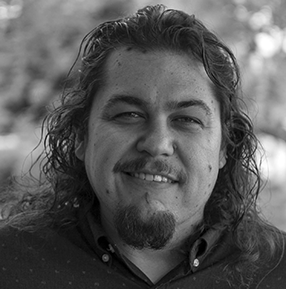brd
stdnt sks
hw s th flyng thng splld?
tchr sys
ll th sft lttrs hv blwn ff
spll brd
lk brd
tchr tlls stry
frst mnfst dstny
th bffl wr hntd nd skltns stckd
th ntv ppl wr pshd n slghtrd
tk wht th y cn s
thn crps plntd nd plntd nd plntd nd plntd
thn dry nd ht nd dry nd cld nd dry nd ht
thn rbbts nd rbbts nd rbbts
thn mn clbbd ll th rbbts
pld nd lghd
vrythng brnd
ll th ppl thrstd nd th lnd crckd
brd jst lft bfr snrs nd snst
brd dsspprd
thn nsts mpty
stdnt sks
wht hppnd t brd?
tchr sys
brd sys n brnchs t prch nd crps cllps nd hrvsts nd n wrms s hngry
brd sys spk sky spk
drk spk
ll thngs trnd psdwn
thn blw wy
nd trnds nd hrrcns nd wrs nd dss
nd nthng lvng
stdnt sks
dd brd knw?
tchr nswrs
brd knw trd t spk
thrt splt
brd ndd wtr
stdnt sys
whts wtr?
Copyright © 2020 by Anthony Cody. Originally published in Poem-a-Day on October 2, 2020, by the Academy of American Poets.
“Last year, I spent an afternoon drawing with my niece and nephews. Before cleaning up, I asked my younger nephew to write the name of the animals he drew. Atop the winged creature he hurriedly wrote brd. This brd challenged me to re-examine the poems I was working on, poems centered around The Dust Bowl, whiteness, and climate collapse in post-truth, late stage capitalism. The more I wrote, the more unsure I became around what future mammal, or animal, the voice summoned. I became more concerned with the fear, exhaustion, and deep sense of loss that arrives within me each time the poem is read aloud. Ultimately, brd continues to ask, what will remain?”
—Anthony Cody

